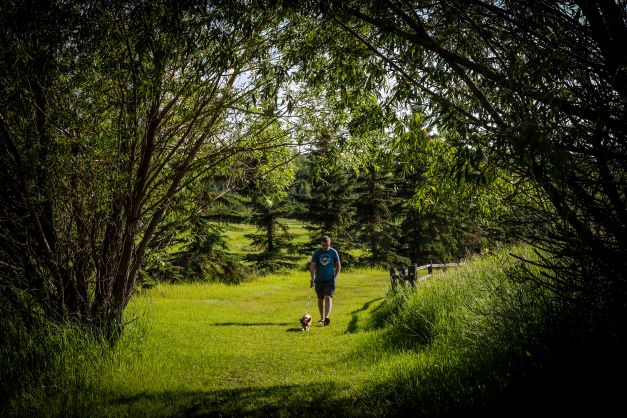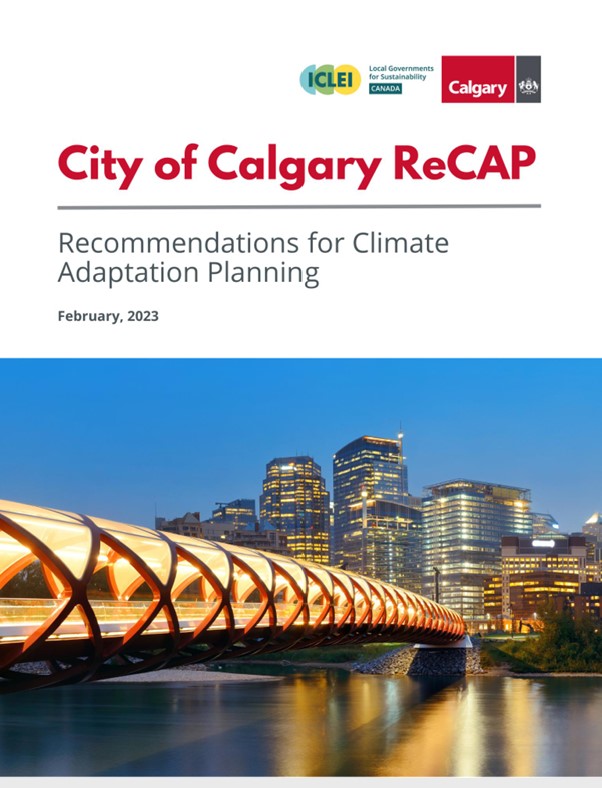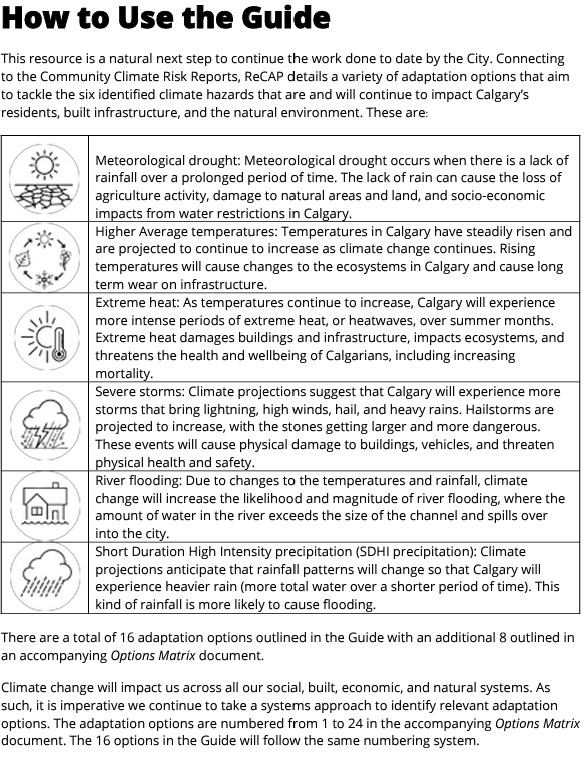Overview
The City of Calgary received $52,075 for the development of a report titled ReCAP: Recommendations for Climate Adaptation Planning. MCCAC provided grant proceeds through the Climate Resilience Capacity Building Program, funded by the Government of Alberta.
The City of Calgary commissioned ICLEI Canada to develop an information resource of emerging practices that summarizes innovative ways for municipalities to integrate climate adaptation and resilience into city planning.
Approach
Located in southern Alberta at the confluence of the Bow and Elbow Rivers, the City of Calgary is demonstrating climate leadership as it prepares to alleviate current and future impacts of a changing climate.
The City of Calgary’s Climate Adaptation Plan, provided direction to complete this work through Action 2.3 “develop a toolkit of climate adaptation and disaster risk reduction measures based on the latest advancements in best practices that can inform City planners and partners as they implement measures to reduce risk and increase resilience.”
ReCAP: Recommendations for Climate Adaptation Planning details a variety of adaptation options that aim to address six climate hazards impacting Calgary’s residents, built infrastructure, and the natural environment: meteorological drought, higher average temperatures, extreme heat, severe storms, river flooding, and short duration high intensity precipitation (SDHI).
The report was developed through mixed methods including a literature review, jurisdictional scan of municipal plans across the country, and interviews with 20 climate adaptation practitioners.
Results
The report presents descriptions of 16 adaptation options across three themes:
- Built Environment
- Natural Environment
- Socio-Economic Systems
Each adaptation option includes details on which of the six climate hazards the option addresses, the effectiveness in achieving the intended outcome, barriers to design or implementation, costs associated with implementation, co-benefits of the option, and how the action may support equity-deserving groups. Each option also contains additional implementation considerations as well as examples where municipalities have implemented these actions.
The final report provides valuable information for municipalities regarding how climate adaptation can be advanced through the avenue of city planning. The report contributes details for municipalities on how actions can be implemented, through incentive programs and education. Notably, significant insights are given on the intersections of equity and climate adaptation actions.
Benefits
The report will have wide-ranging benefits for the City of Calgary and local governments more broadly. This resource will have a role in supporting:
- Safer and more resilient neighbourhoods
- Homes built with climate impacts in mind, protecting residents from harm and financial liability
- Key infrastructure that stays operational during extreme weather
- Natural areas that will endure climatic changes and continue to provide ecosystem services
- Financially-sound decision-making that promotes equity
The report will guide future work at the City of Calgary and provide direction on the development of municipal plans, policies, and practices that address locally-relevant drivers of climate risk. This resource draws on the climate adaptation work that is underway across Canada and will help to spur the City of Calgary into the next phases of implementation.
Once publicly available later this year, the report will have relevance for a range of local governments, consultants, and other climate adaptation practitioners.
Addressing climate change is a strategic priority for The City of Calgary, and as we learn in tandem with other Canadian municipalities, we work towards preparing our city and citizens for a more climate resilient future.
Dawn Smith, Leader, Climate Adaptation






You must be logged in to post a comment.